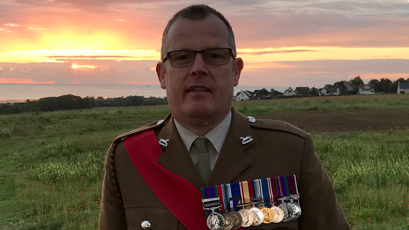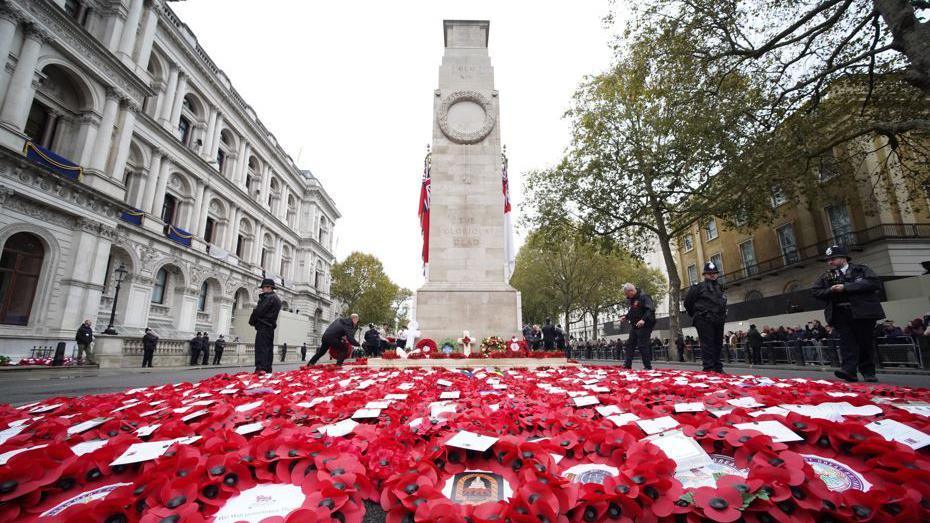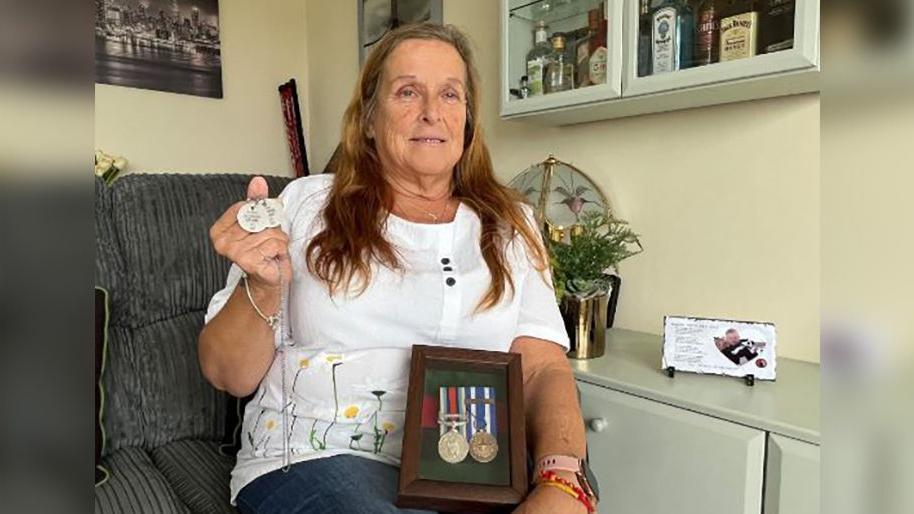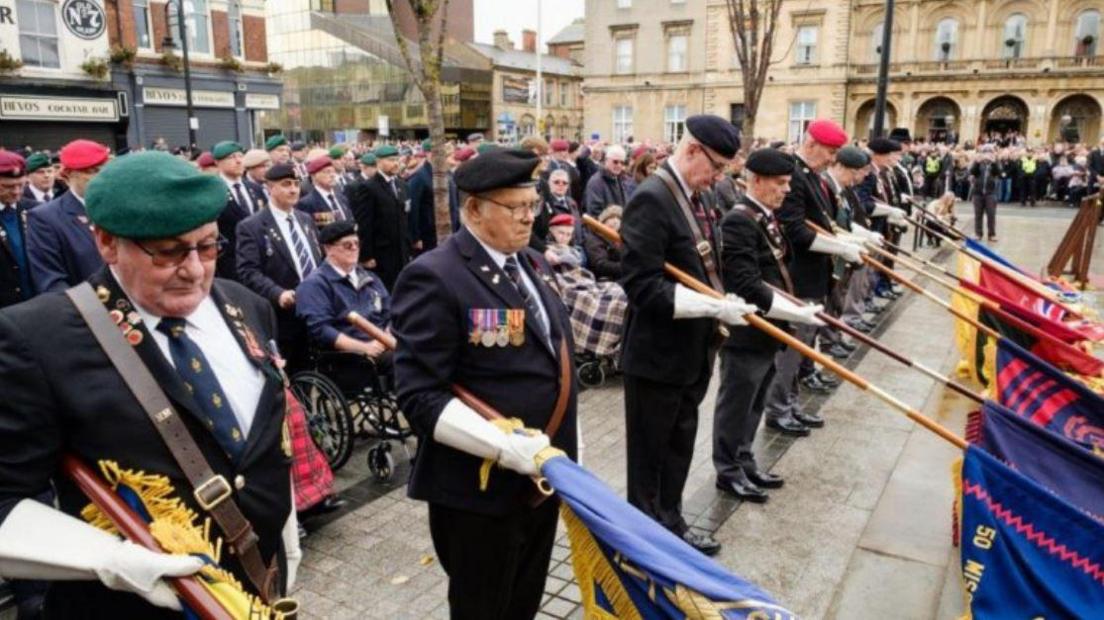Remember all war dead this Sunday - Sgt Major

Paul Smales, a soldier for 35 years, says those who fought in all conflicts should be remembered
- Published
A former soldier with 35 years' service has issued a reminder that Remembrance Sunday is about those who have died in all conflicts, not just the two world wars.
Former Sgt Maj Paul Smales, who joined the Army in 1987, served as a regular and reserve soldier in Northern Ireland, the Gulf, Bosnia, Iraq and Afghanistan.
October saw the 10th anniversary of the end of British combat operations in Afghanistan, which he said had brought back memories for some who had served in the conflict.
Mr Smales, 54, from Barton upon Humber, said: "I am proud to have served. We should remember all those who died, in all conflicts."

Mr Smales says it is important to remember sacrifices made in all conflicts not just the two world wars
The mother of one young soldier killed in Afghanistan recently said she felt his sacrifice had been forgotten.
Mr Smales, who now trains Army cadets in York, said: "I think the focus of Remembrance is on the world wars even though the more modern conflicts went on longer.
"But I think, and so do a lot of veterans, that Remembrance is about remembering those of all conflicts."
Mr Smales served with what is now The Royal Yorkshire Regiment.
During one tour of duty, he deployed to Helmand Province in Afghanistan as "battlefield casualty replacement", taking on the role of a mortar fire controller - co-ordinating bombardments against Taliban fighters.
He said: "I spent a few weeks at Forward Operating Base Inkerman. The enemy would get close, engaging us every day."
Mr Smales said he did not suffer psychologically from the conflict but was aware of others who had - and urged people to remember the sacrifices of survivors, too.
"Apart from those weeks at Inkerman and being shot at a few times, I spent most of the time in the relative safety of the mortar line [where mortars are fired]," he said.
"However, what might be seen as a minor incident to one person might have been a significant trigger for another."
Listen to highlights from Lincolnshire on BBC Sounds, watch the latest episode of Look North or tell us about a story you think we should be covering here, external.
- Published25 October 2024

- Published6 November 2024
